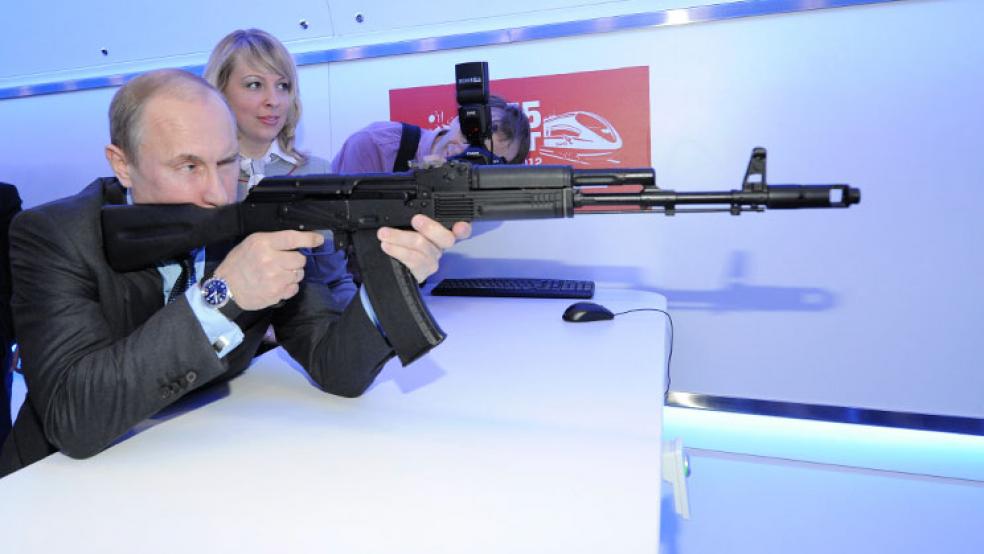Russia’s invasion of Ukraine couldn’t have come at a better time for defense contractors in the West.
As the U.S. and its European allies are in the midst of austerity measures that include budget cutbacks in defense spending, Russian President Vladimir Putin’s territorial aspirations have resulted in a literal call to arms in the West, with NATO planning to push its member states to boost military funding as a way to deter Russia when the alliance meets later this year.
Related: Russia’s Military Bear Is a Paper Tiger
“One of the goals for the summit is to get a commitment from the highest-level leaders to raise defense spending and increase the emphasis on real capability rather than spending money on the wrong thing,” Ambassador Alexander Vershbow, deputy secretary general for NATO, said last week, according to Defense News. “There’s hope that this crisis will be a bit of a wake-up call.”
Lower levels of defense spending in Europe are one reason for the need to ramp-up procurement in areas such as missile defense, munitions and air-to-air refueling aircraft, Vershbow said. That kind of investment could benefit U.S. defense contractors such as Lockheed Martin, Boeing, Raytheon and Northrop Grumman.
Vershbow’s remarks echo those of Republican lawmakers like Sen. John McCain (R-AZ), who last month called on NATO members to ensure their military budgets account for at least 2 percent of gross domestic product. By comparison, U.S. defense spending comprises about 4 percent of its GDP.
Together, Vershbow’s and McCain’s comments suggest that NATO’s current capabilities are not enough to deter further Russian aggression, and that some European countries need to back up their anti-Putin talk by committing to more military spending. That’s the view at least from some in the defense industry on the other side of the Atlantic Ocean.
Related: How Putin Awoke NATO’s Sleeping Giant
“European defense is in an appalling state,” Thomas Enders, chief executive officer of France-based Airbus Group, said last week at an event hosted by the Atlantic Council, a Washington-based research organization. He said recent developments in Ukraine might reverse that decline. “We as a defense industry in Europe are massively reducing capacities and workforces. We are far, far away from an effective European defense strategy.”
The appetite for increased spending would be a heavy left in the U.S., where the Pentagon has proposed a 4 percent reduction in procurement spending for fiscal 2015, which starts on Oct. 1 of this year.
Much of Russia’s military actions in Ukraine have relied on Special Forces engaging less-than-formidable foes, as opposed to heavy artillery combat between two armies. Last week, police in the eastern port town of Mariupol said pro-Russian rebels had tricked Ukrainian soldiers at a checkpoint into eating food laced with a sleeping potion, allowing the rebels to kidnap them, according to Reuters.
Still, tens of thousands of Russian air and land forces have amassed near the border with Ukraine to conduct military exercises.
“Over the long term, NATO must adapt to Russia's new model of using force to achieve its state objectives,” Air Force General Philip Breedlove, NATO’s supreme allied commander in Europe, said last week. “This will require strategic adaptation to meet the demands of the 21st century in deterrence and assurance.”
Top Reads from The Fiscal Times:





